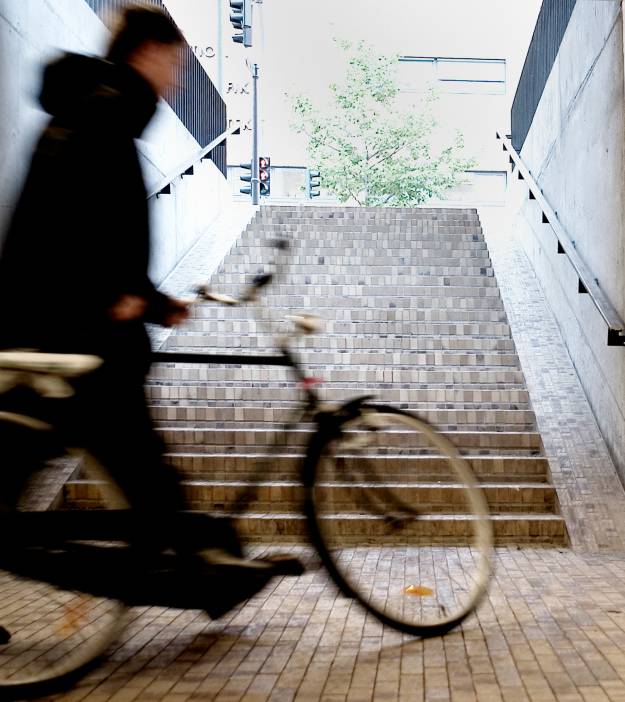British Cycling has applauded the work that construction company and Herne Hill Velodrome contractor, FM Conway, has done to make their HGV fleets safer for cyclists and is encouraging others to follow their lead.
Renovation work at Herne Hill Velodrome is nearing completion and the construction company tasked with bringing a new lease of life to the iconic venue is also leading the way in addressing cycle safety in the operation of its HGV fleet.
Building work for a 250 metre junior track, track-centre hard standing and perimeter floodlighting began earlier this year after the Herne Hill Velodrome Trust secured funding from Southwark Council Olympic Legacy Fund.
FM Conway, the company undertaking the construction work, has introduced a raft of additional safety features to ensure that their HGV drivers are not only better trained when it comes to being cyclist aware, but also better equipped with additional sensors and visibility measures introduced to vehicle cabs.
A system of seven sensors surrounds each vehicle to detect objects within 0.8 metres and track their location and proximity to the vehicle, while an electronic audible ‘vehicle turning left’ also warns pedestrians and cyclists of an upcoming manoeuvre.
“It is great to see that the construction company currently working on one of our most iconic venues has put cycle safety at the heart of their HGV fleet and we encourage others to follow their lead."
British Cycling Policy and Legal Affairs Director Martin Gibbs.
Improvements to the driver’s visibility include the installation of a near-side blind spot camera, which allows the driver to view real-time images of blind spots on the left-hand side of the truck, and a reversing camera which covers the blind spot at the rear of the vehicle. Side-guards have also been installed on the near-side of vehicles, which reduce the potential for cyclists to be caught by the vehicle’s back wheels when HGVs turn left.
In terms of driver education, FM Conway employ a fully qualified HGV driving instructor, Martin Gorman, to deliver training courses including Safer Urban Driving. The Drivers CPC, a legal requirement, states that all HGV drivers must receive five days of approved training by September 2014 to gain their Driver CPC card.
After leading the way in introducing safety measures, FM Conway are encouraging other construction companies to follow their lead.
Peter Parle, Transport Manager for FM Conway, said: “It’s a regrettable fact that construction vehicles account for a disproportionate number of the capital’s cyclist fatalities. FM Conway has purposefully set out to make our new construction vehicles some of the safest on London’s roads.
“The company is currently retro-fitting seven point side sensors and side guards to all of our vehicles and installing four-way recording equipment to monitor traffic incidents for training and investigations. It is our hope that such modifications will become best practice throughout the construction industry in the near future.”
The actions of FM Conway to introduce these measures have been commended by British Cycling’s Policy and Legal Affairs Director Martin Gibbs, who believes that HGV companies should be taking more responsibility for cyclists’ safety on the road.
Gibbs said: “It is great to see that the construction company currently working on one of our most iconic venues has put cycle safety at the heart of their HGV fleet and we encourage others to follow their lead.
“We are working with the industry and the government to bring in changes to the HGV test and Certificate of Professional Competence to make cyclist safety a core part of driver education and assessment.
“We also want to see the retro-fitting of all HGVs, without exception, with mirrors to eliminate blind spots, and the scrapping of the loopholes which allow construction related lorries to operate without side bars. Cities in the UK also need to look at restricting the times that lorries can enter city centres, as we’ve seen in Dublin and Paris.
“These changes would make a huge difference to cyclists on our roads.”













